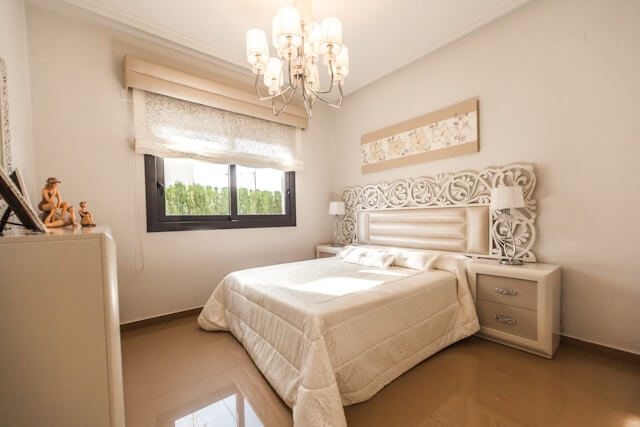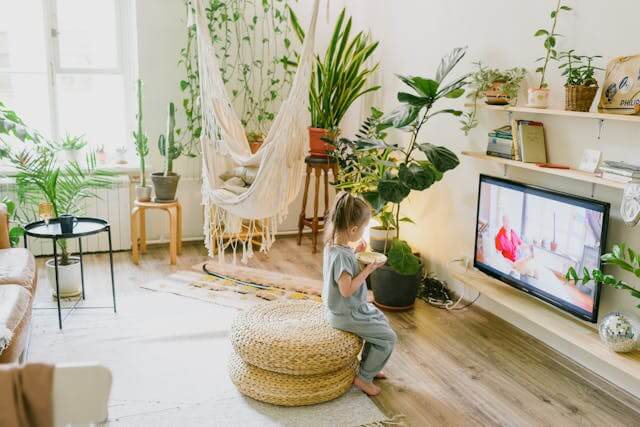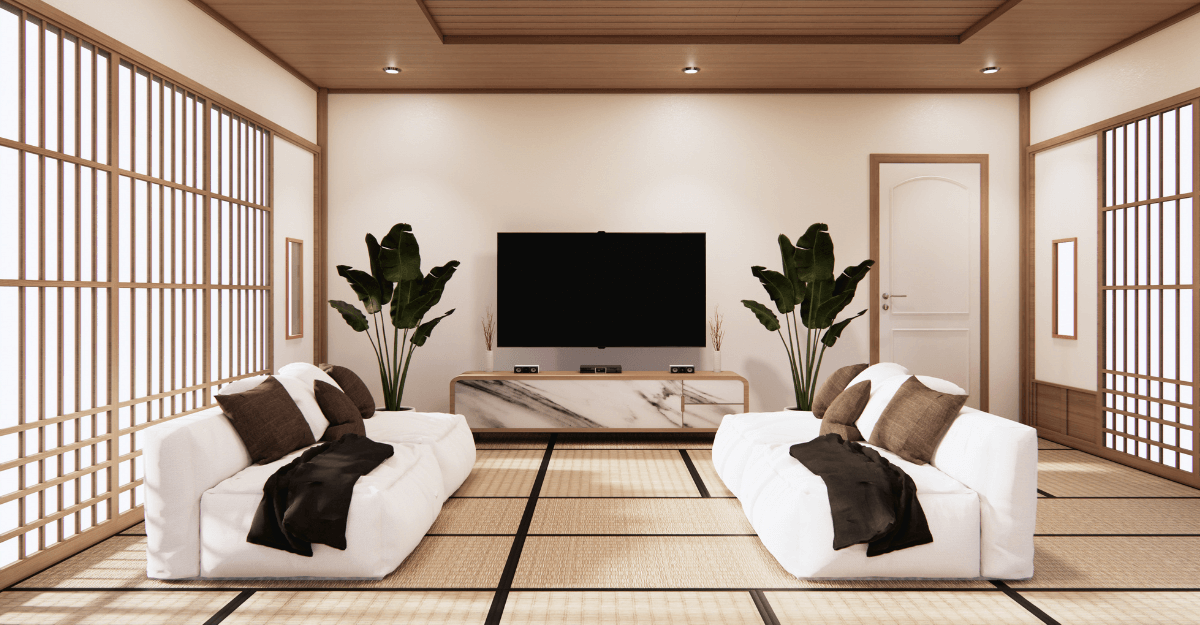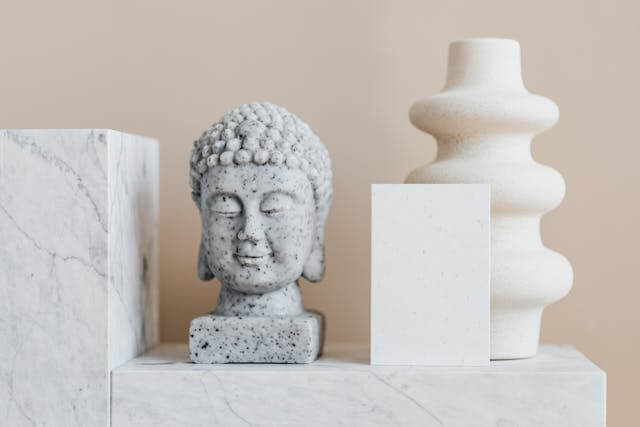If you’re looking to create a home that feels more balanced and harmonious, then incorporating feng shui principles into your decor may be just what you need. Feng shui is an ancient Chinese practice that focuses on the arrangement of objects in a space to promote positive energy flow, or chi. By following some basic feng shui tips, you can create a home that supports your well-being and helps you feel more relaxed and centered.
One of the key principles of feng shui is the idea that everything in your home is connected and affects your energy. This means that the way you arrange your furniture, the colors you choose, and even the objects you display can all impact the energy flow in your space. By paying attention to these details and making intentional choices, you can create a home that feels more peaceful and supportive.
Whether you’re a complete beginner or you’ve dabbled in feng shui before, this guide will provide you with some practical tips for incorporating feng shui principles into your home decor. From choosing the right colors to arranging your furniture in a way that promotes positive energy, we’ll cover everything you need to know to get started with feng shui.
Foundations of Feng Shui

Feng Shui is the ancient Chinese practice of arranging and designing spaces to promote positive energy flow, balance, and harmony in life. The practice has been around for thousands of years and has been used to create peaceful and harmonious living spaces.
History and Origins
Feng Shui originated in China over 3,000 years ago and has been used to create harmonious living spaces ever since. The practice is based on the idea that everything in the universe is connected and that the energy, or Qi, that flows through everything can be harnessed and directed to promote balance and harmony.
The Five Elements
In Feng Shui, there are five elements that are used to create a harmonious living space. These elements are wood, fire, earth, metal, and water. Each element has associated qualities, shapes, colors, seasons, areas of life, and interactions. The goal is to balance these elements in a space to promote positive energy, balance, and harmony in life.
Yin and Yang Balance
Another important aspect of Feng Shui is the balance between Yin and Yang. Yin represents the feminine, passive, and dark aspects of life, while Yang represents the masculine, active, and light aspects of life. The goal is to balance these two energies to create a harmonious living space.
Overall, understanding the foundations of Feng Shui is important in creating a harmonious living space. By balancing the elements and energies in your home, you can promote positive energy flow, balance, and harmony in your life.
Practical Application in Home Decor

Room-by-Room Guide
When applying Feng Shui principles to your home decor, it’s important to consider each room individually. Here are some tips for creating a harmonious and balanced living space in each room of your home:
- Bedroom: Place your bed in a commanding position, meaning that it should be easily visible from the door but not in line with it. Use soft, calming colors and avoid clutter.
- Living Room: Arrange seating in a way that promotes conversation and connection. Avoid placing furniture with backs to the entryway. Use warm, inviting colors and incorporate natural elements such as plants or wood accents.
- Kitchen: Keep your kitchen clean and organized to promote health and well-being. Use the stove as the focal point of the room and keep it clean and in good working order.
- Bathroom: Keep your bathroom clean and well-maintained. Use soft, calming colors and incorporate natural elements such as plants or wood accents.
Color Selection and Usage
Color is an important element in Feng Shui home decor. Here are some tips for selecting and using color in your home:
- Red: Use red sparingly as it can be overwhelming. It’s best used in small accents such as pillows or artwork.
- Yellow: Use yellow in areas where you want to promote happiness and positivity. It’s best used in kitchens and living rooms.
- Green: Use green in areas where you want to promote growth and healing. It’s best used in bedrooms and bathrooms.
- Blue: Use blue in areas where you want to promote calm and relaxation. It’s best used in bedrooms and living rooms.
Furniture Placement
The placement of furniture is also important in Feng Shui home decor. Here are some tips for arranging furniture in a way that promotes balance and harmony:
- Commanding Position: Place your bed, desk, or sofa in a commanding position, meaning that it should be easily visible from the door but not in line with it.
- Balance: Arrange furniture in a way that promotes balance and symmetry. Use pairs of objects such as lamps or chairs to create balance.
- Open Space: Leave plenty of open space in your home to promote a sense of calm and relaxation. Avoid clutter and overcrowding.
By following these tips for practical application of Feng Shui principles in your home decor, you can create a harmonious and balanced living space that promotes well-being and positive energy.
Enhancing Personal Energy

Feng Shui is all about creating a harmonious space that promotes positive energy flow. Incorporating living elements and using mirrors wisely are two ways to enhance personal energy in your home decor.
Incorporating Living Elements
Incorporating living elements such as plants and flowers is an excellent way to bring positive energy into your home. Plants are natural air purifiers and can help reduce toxins in the air, which can improve your overall well-being. Additionally, plants and flowers can help create a calming and relaxing atmosphere in your home.
When incorporating living elements into your decor, it’s essential to choose plants that are appropriate for your space. Consider the amount of light your space receives and the humidity levels. Some plants, such as snake plants and peace lilies, are low maintenance and can thrive in most environments.
Using Mirrors Wisely
Mirrors are an essential element in Feng Shui, as they can help reflect and amplify positive energy in your home. However, it’s crucial to use mirrors wisely and avoid placing them in areas that can create negative energy flow.
One way to use mirrors wisely is to place them in areas that reflect natural light. Mirrors can help bring natural light into darker areas of your home, which can create a more positive and uplifting atmosphere.
Another way to use mirrors wisely is to avoid placing them in areas that reflect clutter or negative energy. For example, avoid placing a mirror directly across from a cluttered or messy space, as this can amplify negative energy flow.
By incorporating living elements and using mirrors wisely, you can enhance personal energy in your home decor and create a harmonious and positive space.
Addressing Common Challenges
Dealing with Small Spaces
Feng Shui can be a bit challenging when it comes to small spaces. However, there are a few things you can do to make the most out of your limited living space. First, you can use mirrors to create an illusion of a larger space. Place them strategically to reflect light and create a sense of depth. Moreover, you can use light-colored curtains and furniture to brighten up the room and make it feel more open.
Another way to maximize your small space is to declutter and organize. Clutter can make your space feel cramped and chaotic, which can negatively impact your energy and mood. Consider investing in multi-functional furniture that can serve more than one purpose, such as a storage ottoman or a sofa bed.
Feng Shui in Multi-Functional Areas
Many homes have multi-functional areas, such as a living room that doubles as a home office or a bedroom that also serves as a workout space. When it comes to Feng Shui in multi-functional areas, it’s important to create a clear separation between the different functions. This can be achieved through the use of dividers, such as curtains or bookshelves.
Additionally, you should consider the energy flow in each area and how it relates to its function. For example, a home office should have a clear view of the door, but a workout space should have a more open and expansive energy flow. By understanding the different energy needs of each function, you can create a harmonious and balanced space that supports your goals and activities.
Overall, Feng Shui can be a powerful tool for creating a harmonious and balanced home environment. By addressing common challenges such as small spaces and multi-functional areas, you can create a space that supports your physical, emotional, and spiritual well-being.
Conclusion
Embarking on your feng shui journey may seem daunting at first, but remember, it’s not about strict rules or instant transformations. It’s a mindful practice of aligning your home with nature’s energy to enhance well-being, creativity, and abundance. By incorporating even a few simple feng shui principles into your home decor, you can invite positive energy, harmony, and balance into your life.
Start small, experiment, and most importantly, trust your intuition. Your home should ultimately reflect your unique personality and style. As you explore the fascinating world of feng shui, remember that the journey is just as rewarding as the destination. Allow the ancient wisdom of feng shui to guide you towards creating a home that nurtures your soul and supports your aspirations.




